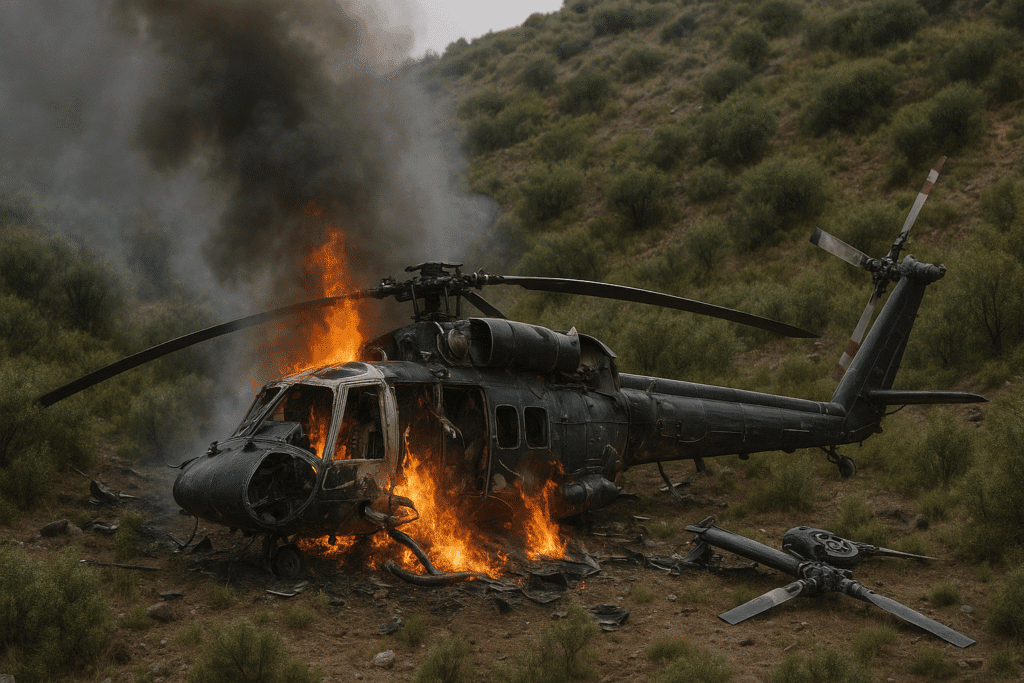A Tragic Loss for Iran’s Leadership
On May 19, 2024, a tragic accident claimed the lives of Iranian President Ebrahim Raisi and Foreign Minister Hossein Amir-Abdollahian, along with seven other passengers and crew members, in a helicopter crash near the Azerbaijan-Iran border. The crash, which occurred under foggy conditions, has sent shockwaves through the political landscape of Iran, leaving the country in a state of uncertainty.
Raisi and Amir-Abdollahian, two of the most influential figures in Iran’s government, had been key players in shaping the country’s domestic and foreign policies. Their deaths represent a significant loss for Iran, which now faces an uncertain political future. The sudden absence of these high-ranking officials has raised concerns about the continuity of governance and the potential for instability within Iran’s political system.
The Immediate Aftermath and Political Uncertainty
The loss of Raisi and Amir-Abdollahian has plunged Iran into political turmoil. Both men were integral to the ruling administration, with Raisi, as president, overseeing key policy decisions, and Amir-Abdollahian, as foreign minister, playing a central role in Iran’s foreign diplomacy, particularly with regional powers and the West. The void left by their deaths has prompted concerns over leadership succession and the potential power struggles that could emerge in the wake of this tragedy.
In the hours following the crash, Iran’s leadership and various political factions scrambled to manage the situation, with temporary appointments made for key positions. However, the long-term impact of the crash remains uncertain, as political factions vie for influence, and the country’s power structure adjusts to this unexpected change in leadership.
United Nations Resolution on Palestine
In a stunning development, the United Nations General Assembly, amid the political turbulence in Iran, passed a resolution granting Palestine the right to be seated among member states. This resolution marks a significant shift in international diplomacy, with the move seen as a symbolic victory for Palestinian sovereignty. The timing of the resolution, coming shortly after the crash in Iran, has raised questions about its potential impact on the already volatile geopolitical situation in the Middle East.
The UN’s decision reflects a growing international recognition of Palestine’s aspirations for statehood and recognition within the global community. This move has been celebrated by Palestinian leaders and their supporters, who view it as an important step towards achieving full recognition and membership in the global order. However, it has also sparked criticism from some countries that have long opposed Palestine’s full membership in the UN, including Israel and the United States.
Geopolitical Implications
The combination of the tragic loss of Iran’s top officials and the UN’s resolution on Palestine has the potential to reshape the geopolitical landscape of the Middle East. Iran, which has long been a strong supporter of Palestinian sovereignty, may experience a shift in its foreign policy priorities as it grapples with internal political changes. The leadership vacuum in Iran could lead to a reorientation of regional alliances and a potential realignment of foreign policy, particularly with regard to its stance on the Israeli-Palestinian conflict.
Furthermore, the United Nations’ decision to grant Palestine the right to be seated could provoke further tensions between regional powers, particularly Iran and Israel, as well as influence international diplomacy. The Middle East remains a region of high geopolitical volatility, and these developments have the potential to influence future diplomatic negotiations and international relations.
The Road Ahead
In the wake of these significant events, the future of Iran’s political landscape is uncertain. The loss of two key figures in its government has left the country facing a complex and difficult period of transition. The response to the tragedy, both domestically and internationally, will likely play a crucial role in shaping the region’s future dynamics.
As Iran navigates this uncertain period, the international community will be closely watching for signs of political stability or further instability. The passage of the UN resolution on Palestine also signals a shift in international diplomacy, with far-reaching consequences for the Middle East. As the situation evolves, it is clear that the events of May 19, 2024, will have a lasting impact on both Iran and the broader region.
